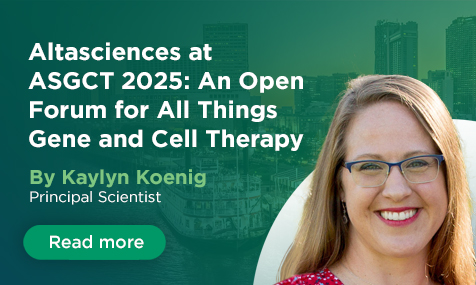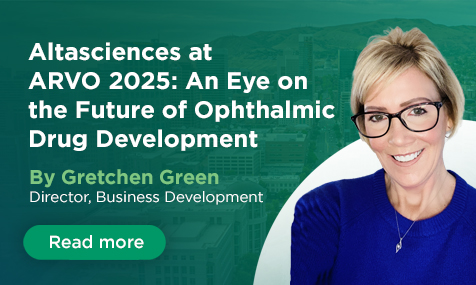Consultant’s Corner—Reflections from a Study Monitor and Director: A Career in Toxicology, by Bill Brock
Some might say a reflective piece like this could come across as sounding “preachy”. Maybe it is. But it is reflective of a long and rewarding career built on the belief that we as scientists need to give back to the field of toxicology, supporting the growth of future leaders.
It’s been nearly 44 years since I entered the field of toxicology. Throughout my time I have encountered other toxicologists and scientists who shaped my own science and career. I started as a study director at Haskell Laboratory, overseeing studies for the businesses of DuPont, primarily in agrochemical and commodity chemicals, but also for the textile, pharmaceutical, and food industries. Those studies included acute, repeat-dose, developmental toxicology, and carcinogenicity, with routes of administration ranging from oral (diet, drinking water, and gavage) to inhalation.
At the time, GLP regulations were becoming more enforceable, studies conducted with a casual adherence, i.e., in the spirit, to GLPs were viewed as retrospectively inadequate and would no longer “fly” with the standards required by the FDA, Environmental Protection Agency (EPA) and other regulatory bodies. I might not have recognized it at the time, but working in a laboratory environment as a study director was really cool!
Since then, I have taught study director courses around the world and published a book sharing my insights from my experience of being a study director. Indeed, these learnings have paid dividends to what I do today as a study monitor for toxicology studies at contract research organizations (CROs), such as Altasciences.
A Changing Landscape in Toxicology
There’s still much more to learn and experience in our field, particularly with the advent of AI and New Alternative Models (NAMs), and the expansion of AAVs and gene and cell therapies. How these technologies will reshape toxicology and nonclinical studies is something we’ll continue to learn over the next decade or so.
Some of this knowledge will come from research conducted by universities and research institutes. But we must not forget the CROs that invest in these and other methodologies to improve our understanding of drug development, and the interpretation of study results to identify new animal models and reduce animal use.
As toxicologists, we should be mindful of the future of our field. Recent developments in areas such as vaccines, Generally Recognized as Safe (GRAS) assessments, and related research have introduced complex challenges that may impact the pace of scientific progress. In the face of these complexities, it remains important to focus on rigorous science and to continue supporting the work of colleagues across all sectors.
We must also look to the next generation. There are many who have been trained in sub-specialties of toxicology, including molecular biochemistry, genetics, epidemiology, and other related sciences. We do not need to look too far for those leaders—many are already part of the team at Altasciences, as well as at other CROs, biotech/pharmaceutical companies, and government departments.
Investing in the Next Generation of Toxicologists

As senior members of our field, it is our duty not only to encourage and mentor the next generation, but also to let them fail. After all, we have all failed or committed errors during our career. It’s an inevitable part of our job as scientists, and as humans.
There are many adages about failure. My favorite comes from Sir Winston Churchill, who faced many challenges throughout his life. He said, "Success is not final, failure is not fatal: it is the courage to continue that counts."
Our future scientific leaders can teach us about toxicity mechanisms, nuances of drug development, interpretation, study designs. I often rely on toxicologists from Altasciences—such as Drs. Lisa Biegel, Julie Forget, and Scott Boley, among others, who are easily accessible when needed. Attending conferences, such as ACT and SOT, provides us with the perfect opportunity to connect with and learn from their experiences.
One way that CROs can effectively nurture the talent of younger toxicologists is by giving them the opportunities to attend these meetings—to broaden their knowledge, expand their professional networks, and encourage publications such as poster abstracts or full-length articles. Internal presentations and journal clubs have served me well over decades and contributes to spreading the word about new science and techniques.
In closing, I encourage my peers of consulting toxicologists to embrace the lessons of the past and pass those learnings on to future study monitors and study directors. There are lessons we all have that can serve the future leadership of our profession.
About the Author
William “Bill” J. Brock has spent more than four decades deeply immersed in the toxicology community, building a career marked by scientific curiosity, mentorship, and leadership. His work today centers on advising sponsors across the pharmaceutical, chemical, and consumer product industries, offering expert insight in pharmacology and toxicology. With a long-standing research interest in the hepatic effects of xenobiotics, he also maintains a strong academic connection as Adjunct Assistant Professor at the University of North Carolina at Chapel Hill’s School of Pharmacy. There, he supports PhD candidates and guides graduate research exploring the mechanisms of drug-induced liver toxicity.
and toxicology. With a long-standing research interest in the hepatic effects of xenobiotics, he also maintains a strong academic connection as Adjunct Assistant Professor at the University of North Carolina at Chapel Hill’s School of Pharmacy. There, he supports PhD candidates and guides graduate research exploring the mechanisms of drug-induced liver toxicity.
Throughout his career, Bill has earned recognition for both his scientific contributions and his dedication to professional service. He became a Diplomate of the American Board of Toxicology (ABT) in 1987 and was named a Fellow of the American Toxicology Society (ATS) in 2004. He has held leadership positions on both the ABT and ATS Boards of Directors, including terms as President of each. His commitment to the field was honored with the ACT Service Award in 2017 and, more recently, the Mildred Christian Career Achievement Award from ATS in 2024.
Bill has long been active in professional societies, including the Society of Toxicology (SOT) and the American College of Toxicology (ACT), where he continues to serve in leadership roles. Bill is the owner of Brock Scientific Consulting, a practice providing tailored technical and regulatory support focused on the development and defense of new and existing products.
This article was published in May 2025.



